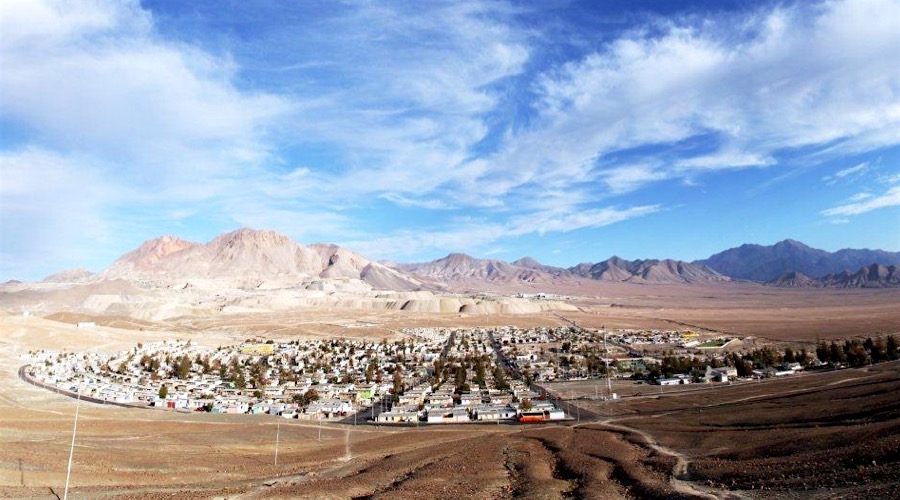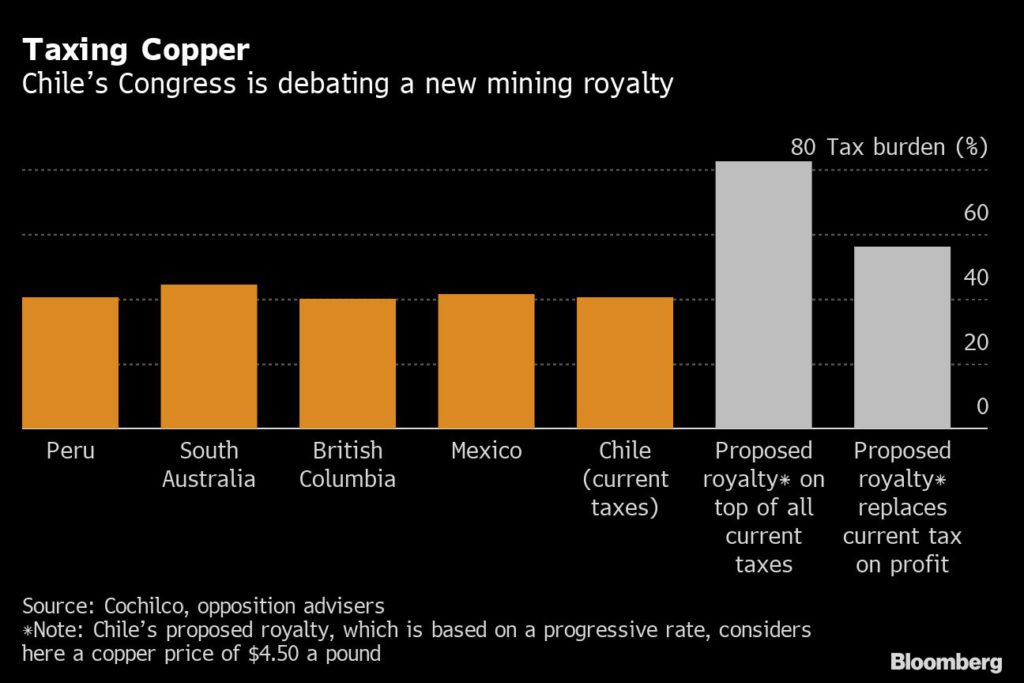A giant copper union joins push for bigger state role in Chile

As the top copper-producing nation drafts a new constitution and heads toward presidential elections, an influential mining union is pushing for a bigger state role in mining and a much larger government take.
The FTC, which brings together unions at Chile’s state-owned copper producer Codelco, wants privately-run mines to pay 75% of earnings in tax and ensure that Codelco takes the lead on all new major projects, President Patricio Elgueta said in an interview. FTC directors are pitching the proposal to lawmakers, other politicians and members of the Constitutional Assembly.
Normally, the manifesto of a labor federation — even one that represents 15,000-plus workers — wouldn’t hold much legislative or regulatory sway, especially with a market-friendly government in power. But the political winds in Chile have shifted. An outbreak of social unrest in late 2019 led to the process of drafting a new charter by a group comprising mainly independents and left-wingers. At the same time, a copper windfall tax is being debated in congress as the country seeks ways to lift social spending and rectify inequalities exacerbated by the pandemic.
“We have hope and faith that we will be heard,” Elgueta said from Codelco’s Salvador mine in northern Chile. “The government needs to have an essential role.”

The federation’s tax proposal would focus on “economic returns,” unlike a royalty bill in the senate that would place progressive duties on sales. It would also differentiate between bigger and smaller mining operations, as well as place higher levies on companies that export semi-processed copper than on those that ship out refined metal products.
While Elgueta said the royalty bill is a “step forward,” the FTC’s plan is “more ambitious.” Both the government and the mining industry oppose the bill, saying the much heavier implied tax burden would make investing in Chile less attractive even with high copper prices.
Codelco, formed by the nationalization of U.S-owned mines in the 1970s, has seen its share of Chilean copper production dwindle to about 30% as global heavyweights such as BHP Group and Anglo American Plc developed massive open-pit mines.
Elgueta said the state-owned company should be in a position to take on future projects despite its current 10-year, $40 billion program to overhaul aging deposits, possibly by tapping a state fund.
(By Daniela Sirtori-Cortina and James Attwood)
{{ commodity.name }}
{{ post.title }}
{{ post.date }}




Comments